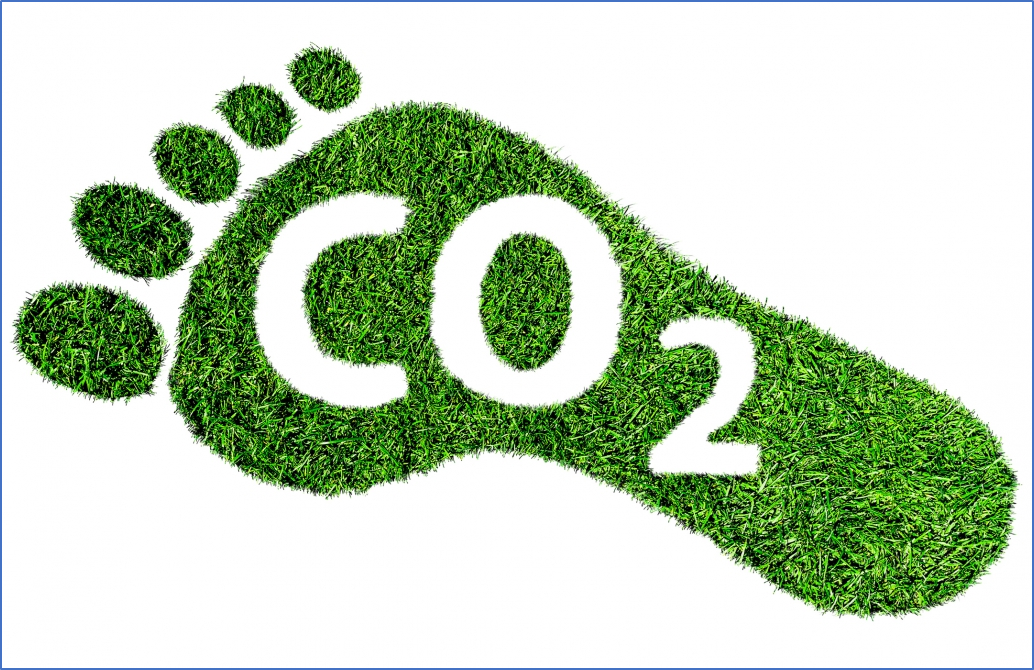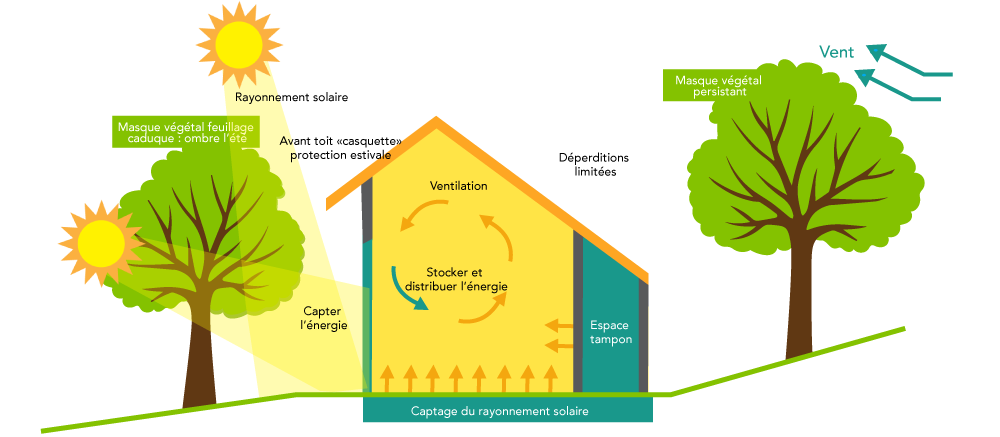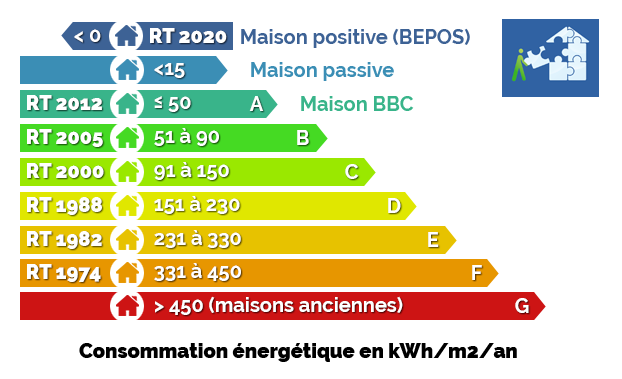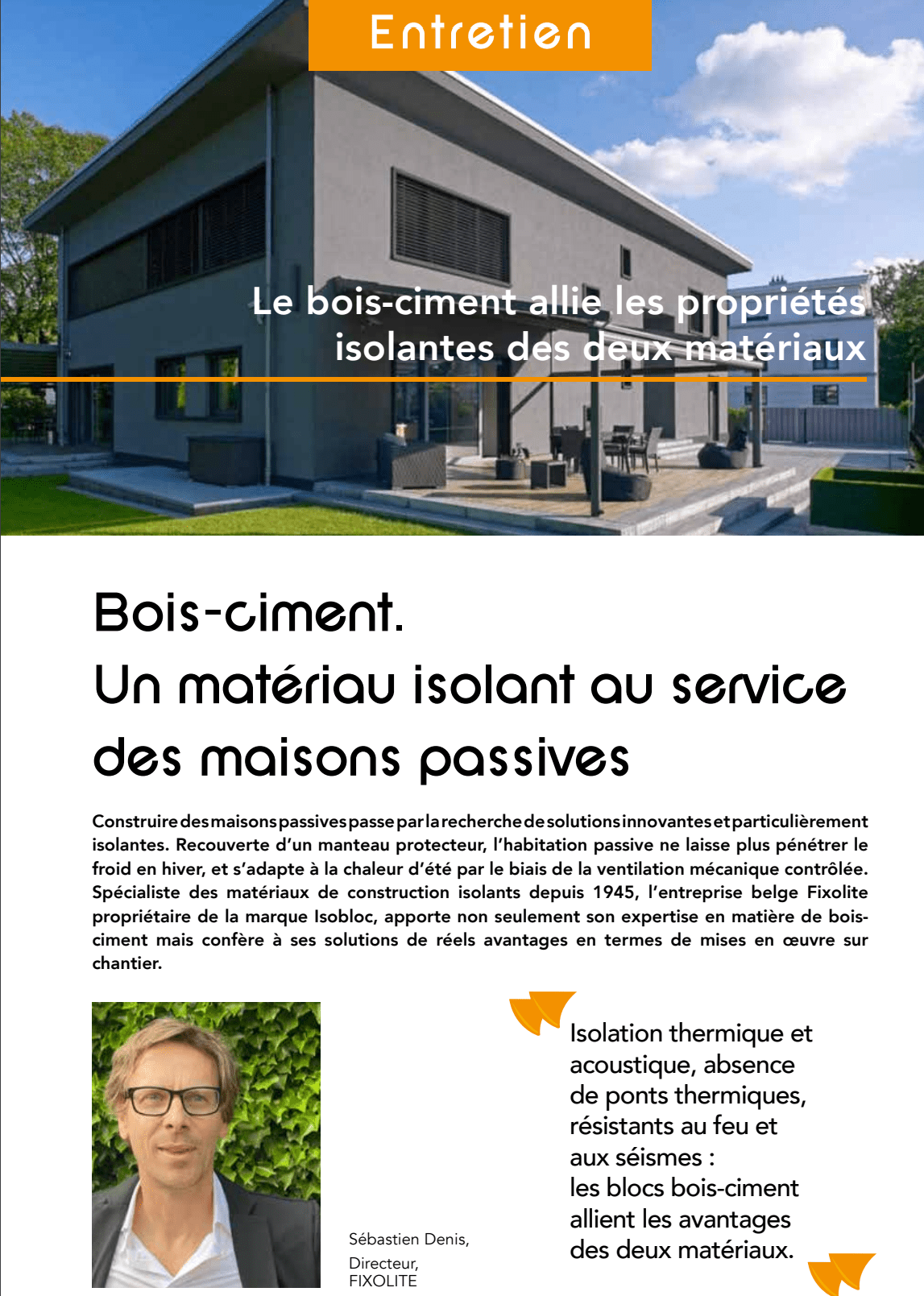-
Carbon footprint of insulation
It is important to note that the carbon footprint of insulation materials depends on a number of factors, including However, here is a general comparison of the carbon footprint of some common insulation materials: Insulation kg CO2 eq/m² for R=5 Thickness (cm) for R=5 Glass wool 5-15 23 Expanded polystyrene (EPS) 10-25 18 Rock wool 5-25... Read more →
-
Heating a BBC
A BBC (Bâtiment Basse Consommation) is designed to minimise energy consumption. To heat such a building efficiently, here are a few tips: Remember, the aim of a BBC is to be as energy-efficient as possible, so use these tips in conjunction with eco-responsible practices to minimise your energy consumption. Read more →
-
RE2020
The RE2020, or Réglementation Environnementale 2020, is a French regulation designed to improve the energy and environmental performance of new buildings. It replaces the previous thermal regulations, known as RT 2012, and marks a major step forward in France's efforts to reduce greenhouse gas emissions and combat climate change. Read more →
-
Fixolite in Valeurs Energie
September 2023 Interview with Valeur Energie at FIXOLITE for the special edition on wood construction. The Fixolite block manufactured in the Italian branch of Isobloc is an asset for self-construction that is both ecological and earthquake-resistant, with exceptional acoustic and thermal performance. Read more →
×




